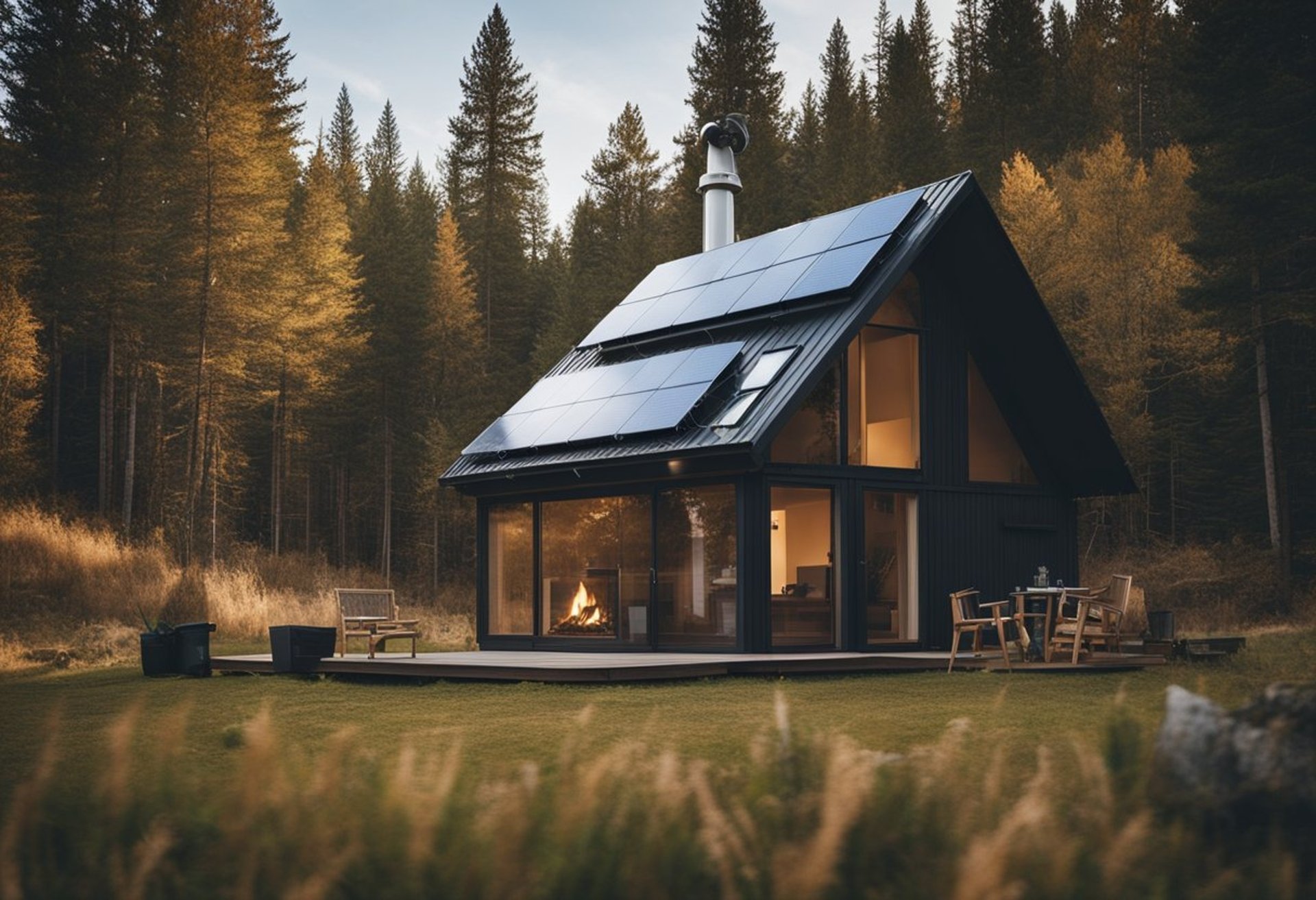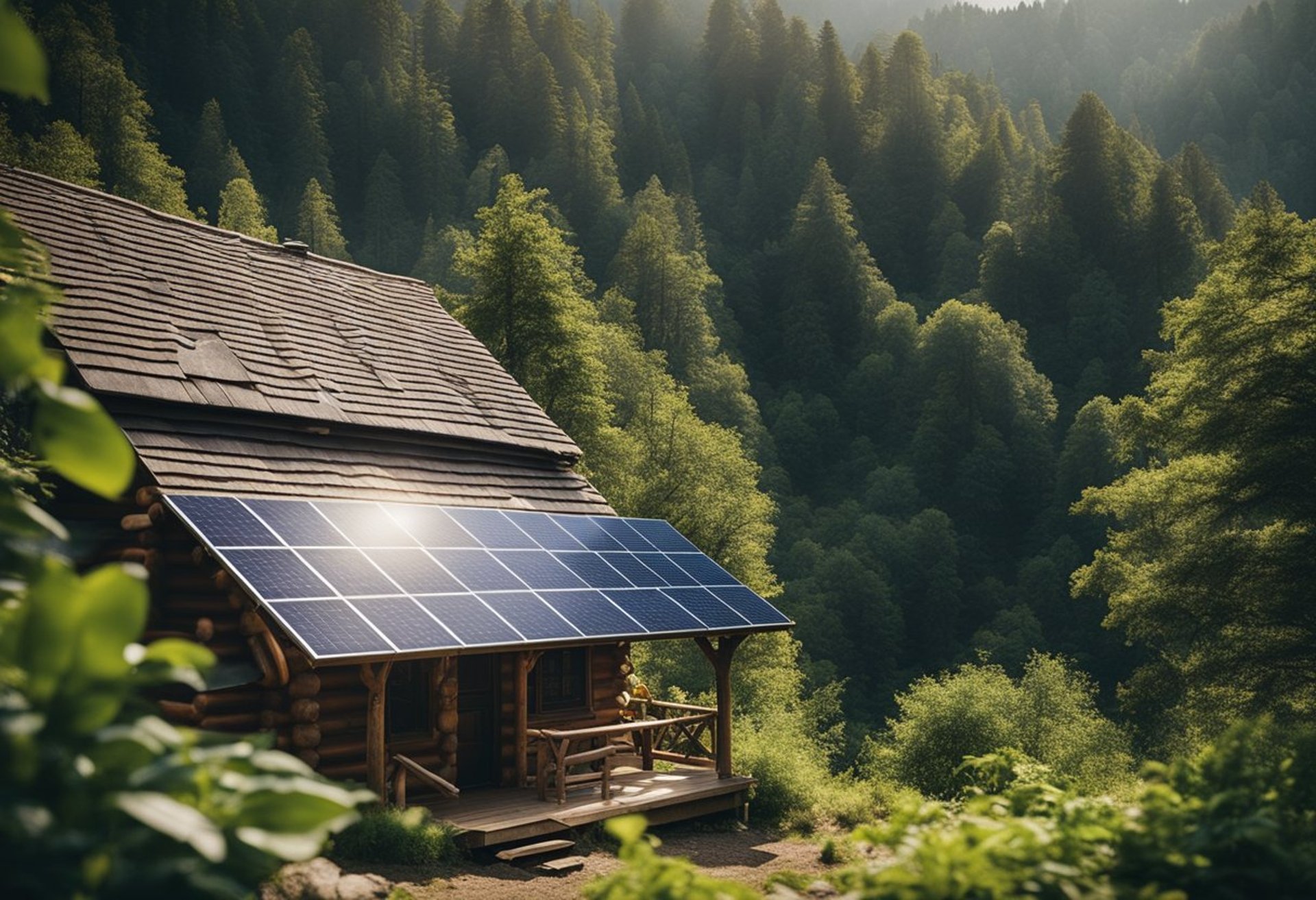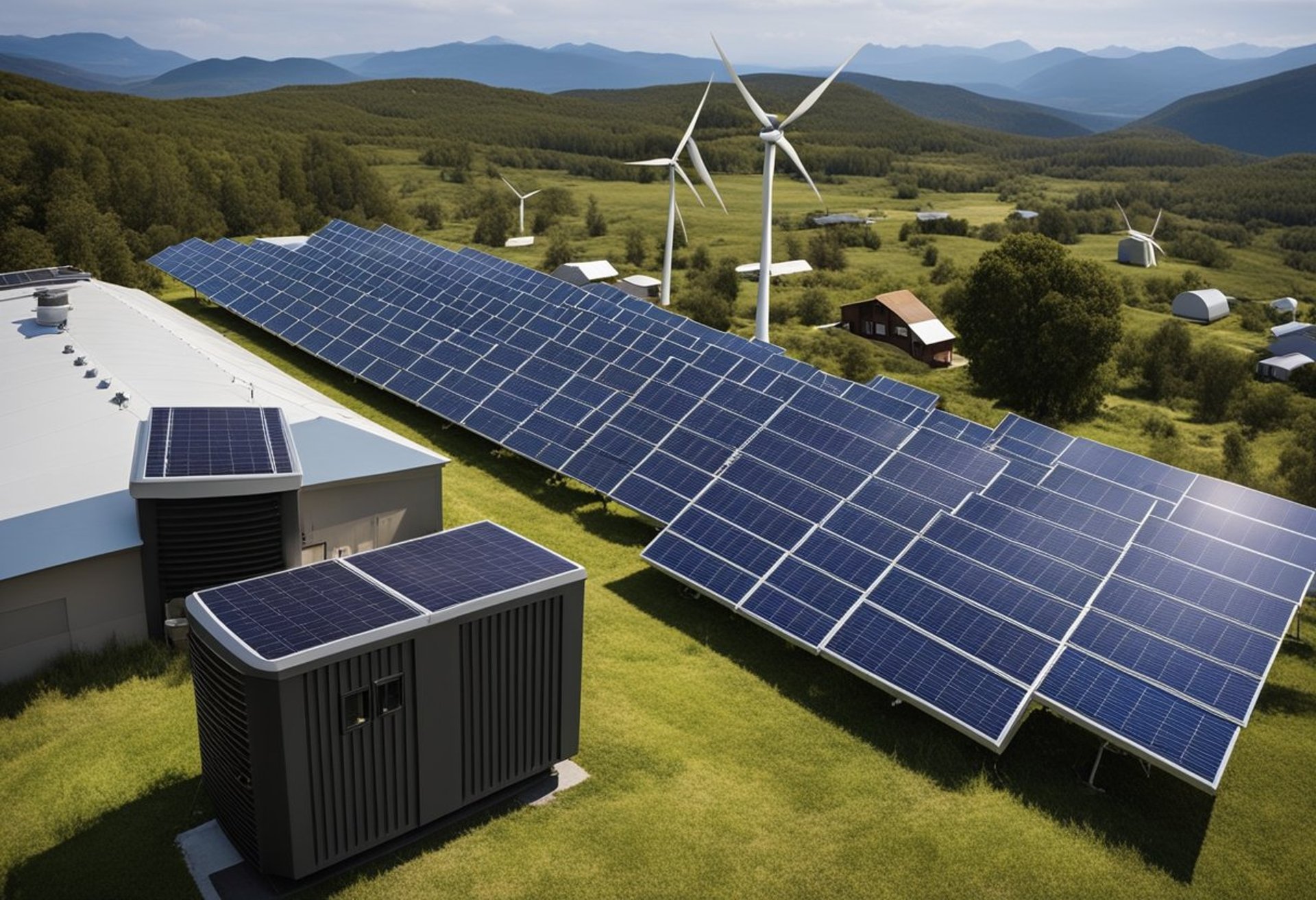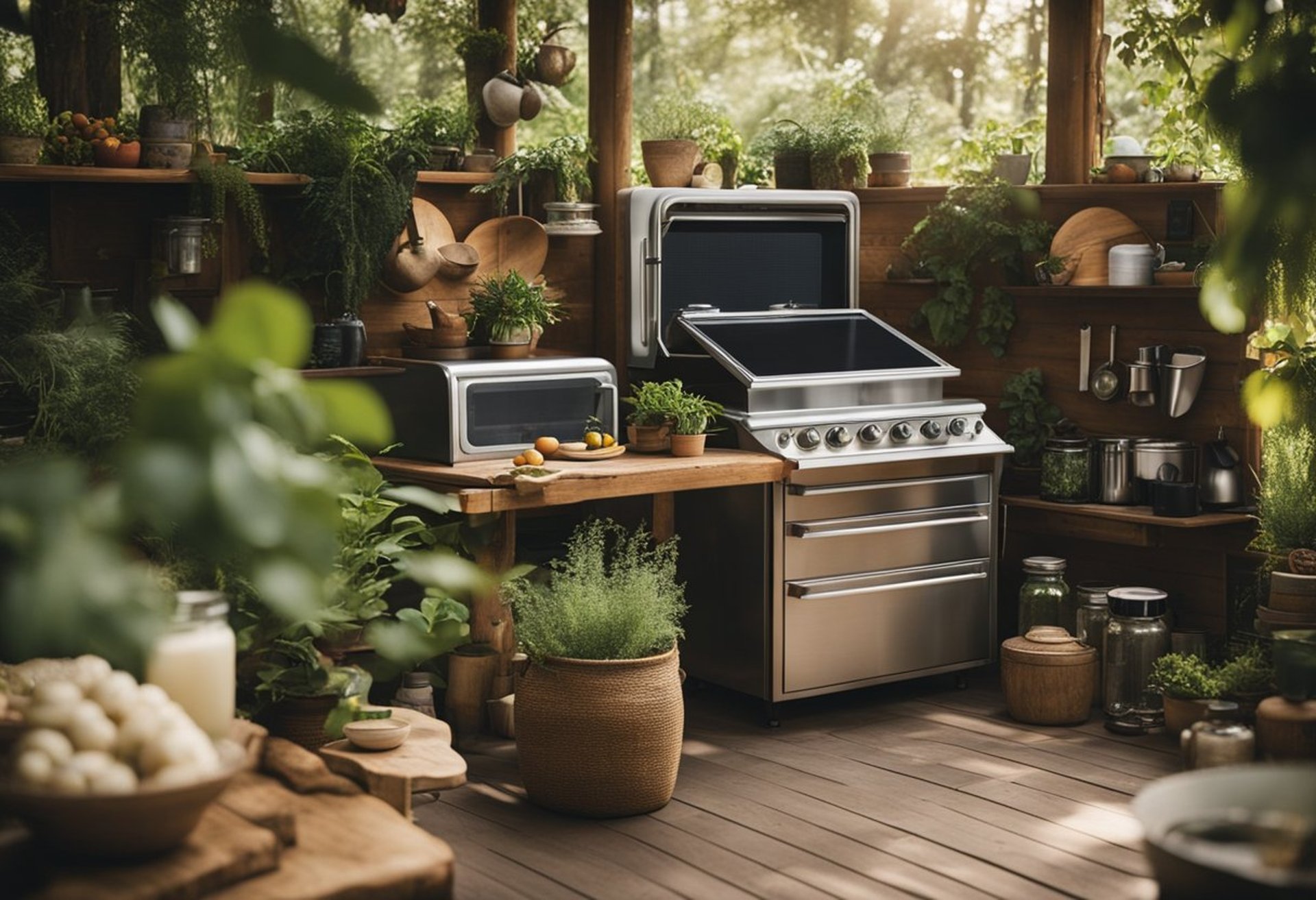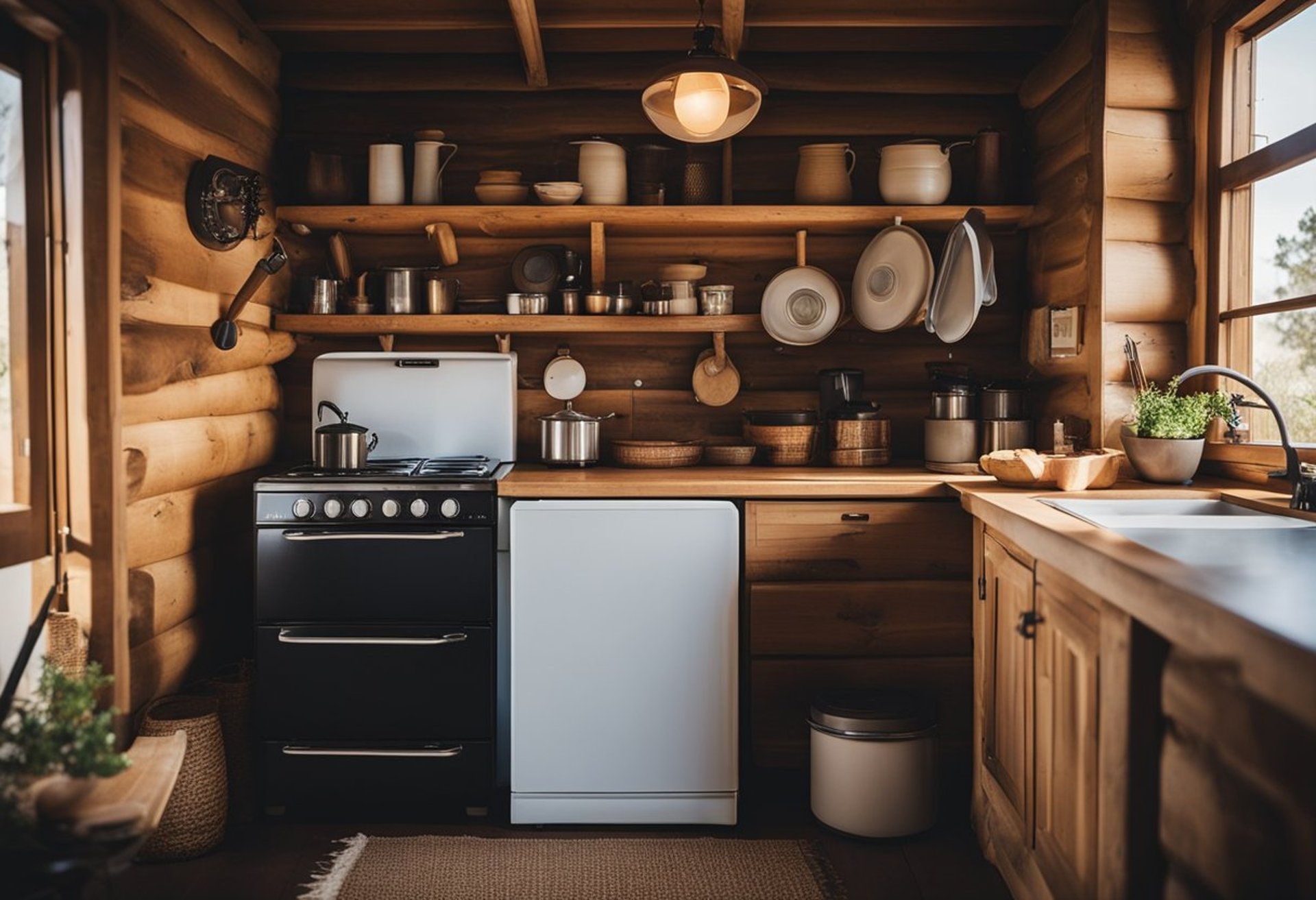Off Grid Living Appliances: Essential Tools for Sustainable Independence
Off-grid living appeals to many seeking independence and sustainability. By understanding which appliances are essential for such a lifestyle, individuals can create a comfortable and efficient home, even in remote locations. The right choices support self-sufficiency while maintaining modern conveniences.
Those considering this transition must weigh several factors, including energy needs, water access, and food preservation methods. Selecting appliances designed for off-grid usage ensures compatibility with limited resources. This enhances the quality of life while embracing a simpler, more sustainable way of living.
From solar-powered refrigerators to efficient water purification systems, each appliance contributes to a holistic approach to off-grid living. The right tools enable a seamless blend of comfort and resourcefulness, making it easier for anyone to embark on this rewarding journey.
Key Takeaways
Choosing efficient appliances is crucial for off-grid living.
Sustainable power generation and storage enhance independence.
Water purification is essential for health in remote areas.
Core Off-Grid Appliance Considerations
When choosing appliances for off-grid living, energy efficiency and durability are crucial. These factors impact both sustainability and the long-term functionality of appliances. Residents should prioritize appliances that provide reliable performance with minimal energy consumption while being easy to maintain.
Energy Efficiency
Energy-efficient appliances are essential for off-grid living. They help conserve limited resources and can significantly reduce reliance on generators or solar panels. The Energy Star certification is a reliable indicator of efficiency.
Key Appliances to Consider:
Refrigerators: Look for models that use less than 50 kWh per month.
Water Heaters: Opt for solar or tankless options to minimize energy usage.
Lighting: Utilize LED bulbs, which last longer and consume less power.
Investing in energy-efficient appliances can lead to substantial savings on energy costs in the long run. It enables a more sustainable lifestyle by reducing the overall energy footprint.
Durability and Maintenance
Durability is vital for off-grid appliances, as they often operate in remote or challenging environments. Choosing robust models designed for heavy use can prevent frequent replacements.
Maintenance Tips:
Regular Checks: Monitor appliance performance and address issues promptly.
User Manuals: Follow guidelines for maintenance schedules and proper usage.
Quality Brands: Research brands known for producing long-lasting appliances.
Selecting appliances built for durability ensures they can withstand the demands of off-grid living. Proper maintenance extends their lifespan and guarantees consistent performance.
Power Generation and Storage
Power generation and storage are vital for off-grid living. Efficient systems can make self-sufficiency achievable, ensuring constant access to energy.
Solar Panels and Wind Turbines
Solar panels convert sunlight into electricity, making them a popular choice for off-grid setups. They come in various types, including monocrystalline, polycrystalline, and thin-film, each with distinct efficiencies and costs.
Monocrystalline panels: Higher efficiency and higher price.
Polycrystalline panels: Lower cost but slightly less efficient.
Thin-film panels: Lightweight and flexible, ideal for specific applications.
Wind turbines harness wind energy, providing another renewable option. They work best in areas with consistent wind and vary in size—from small residential models to large installations.
Factors to consider include:
Location: Assess wind speeds and solar exposure.
Energy needs: Calculate consumption to determine system size.
Batteries and Backup Generators
Batteries store energy generated by renewable sources, allowing for use when production is low. Common types include lead-acid and lithium-ion.
Lead-acid batteries: Cost-effective but shorter lifespans.
Lithium-ion batteries: Higher efficiency and longer life, though more expensive.
Backup generators provide power during periods of low generation or high demand. Options include gas-powered, diesel, or propane units. Each type has advantages based on availability and fuel efficiency.
Key considerations include:
Capacity: Must meet energy needs.
Fuel source: Determine the most accessible options based on location.
Water Purification and Sanitation
Maintaining clean water and effective sanitation is crucial for off-grid living. Various solutions exist for water purification and waste management, ensuring health and safety in a self-sufficient lifestyle.
Filters and Purifiers
Water filters and purifiers are essential tools for obtaining potable water. They remove contaminants and pathogens that can cause illness. Common types of filters include:
Activated Carbon Filters: Effective for removing chlorine, sediment, and volatile organic compounds (VOCs).
Reverse Osmosis Systems: Removes up to 99% of contaminants, offering one of the highest purification levels.
UV Purifiers: Use ultraviolet light to kill bacteria and viruses without chemicals.
Selecting the right purification method depends on water source quality and specific needs. Many off-gridders opt for a combination of techniques for enhanced safety. Regular maintenance of these systems is necessary to ensure optimal performance.
Composting Toilets
Composting toilets are a sustainable solution for waste management in off-grid living. They convert human waste into compost, reducing the environmental impact of traditional toilets. Benefits include:
Water Conservation: These toilets use little to no water, ideal for areas with limited water supply.
Odor Control: Properly designed systems manage odors effectively.
Nutrient-Rich Output: The compost generated can enrich soil after adequate processing.
Installing a composting toilet requires consideration of location and ease of access for maintenance. Regularly turning the compost and monitoring moisture levels ensures a hygienic and efficient system.
Heating and Cooling Solutions
Off-grid living requires effective heating and cooling systems to maintain comfortable indoor environments. Solutions include wood stoves, passive solar techniques, and propane or solar air conditioners.
Wood Stoves and Passive Solar
Wood stoves offer a reliable heating source that can be particularly effective in remote locations. These stoves can generate significant heat from readily available wood fuel, reducing dependency on electric systems.
In addition to wood stoves, passive solar heating optimizes natural sunlight for warmth. This method involves strategically placing windows and thermal mass materials to absorb and retain solar energy.
Choosing the right wood stove includes considering size, efficiency, and emissions. It is also essential to ensure proper installation and ventilation to maximize safety and performance.
Propane and Solar Air Conditioners
Propane air conditioners provide an effective cooling solution in off-grid settings. These units can be more efficient than conventional electric systems. They are particularly useful in areas with limited electricity access.
Solar air conditioners harness energy from the sun, converting it into cooling power. These systems may use photovoltaic panels to generate electricity or employ solar thermal technology for cooling purposes.
When selecting a propane or solar unit, energy efficiency ratings and capacity are critical factors. Proper installation ensures optimal performance and longevity of the systems.
Food Preservation and Cooking
Food preservation and cooking are crucial for off-grid living. Choosing the right appliances can greatly impact sustainability and efficiency. This section discusses gas ranges and ovens, as well as refrigeration options suitable for off-grid setups.
Gas Ranges and Ovens
Gas ranges and ovens offer reliable cooking solutions without requiring electricity. They are powered by propane or natural gas, making them ideal for off-grid environments.
Key features to consider include:
Efficiency: Gas burners heat quickly, allowing for faster cooking times.
Temperature Control: Precise heat adjustment supports various cooking techniques.
Durability: Many options are built to withstand rugged conditions.
For added convenience, consider models with an oven and a stovetop to maximize cooking versatility. Manufacturers like Camp Chef and Hestan Supply make popular choices among off-grid enthusiasts.
Refrigeration Options
Refrigeration is essential for preserving food. Off-grid options include propane-powered refrigerators and solar-powered units.
Propane Refrigerators: These models operate using propane gas and provide good insulation. Benefits include:
Energy Source: No electricity is required, making them suitable for remote areas.
Storage Capacity: Available in various sizes to fit different needs.
Solar Refrigerators: Using solar panels, these units convert sunlight into energy. Advantages include:
Renewable Energy: They utilize free solar energy, reducing long-term costs.
Environmentally Friendly: Solar options minimize carbon footprint.
Choosing the right refrigeration method depends on individual energy preferences and space considerations.










